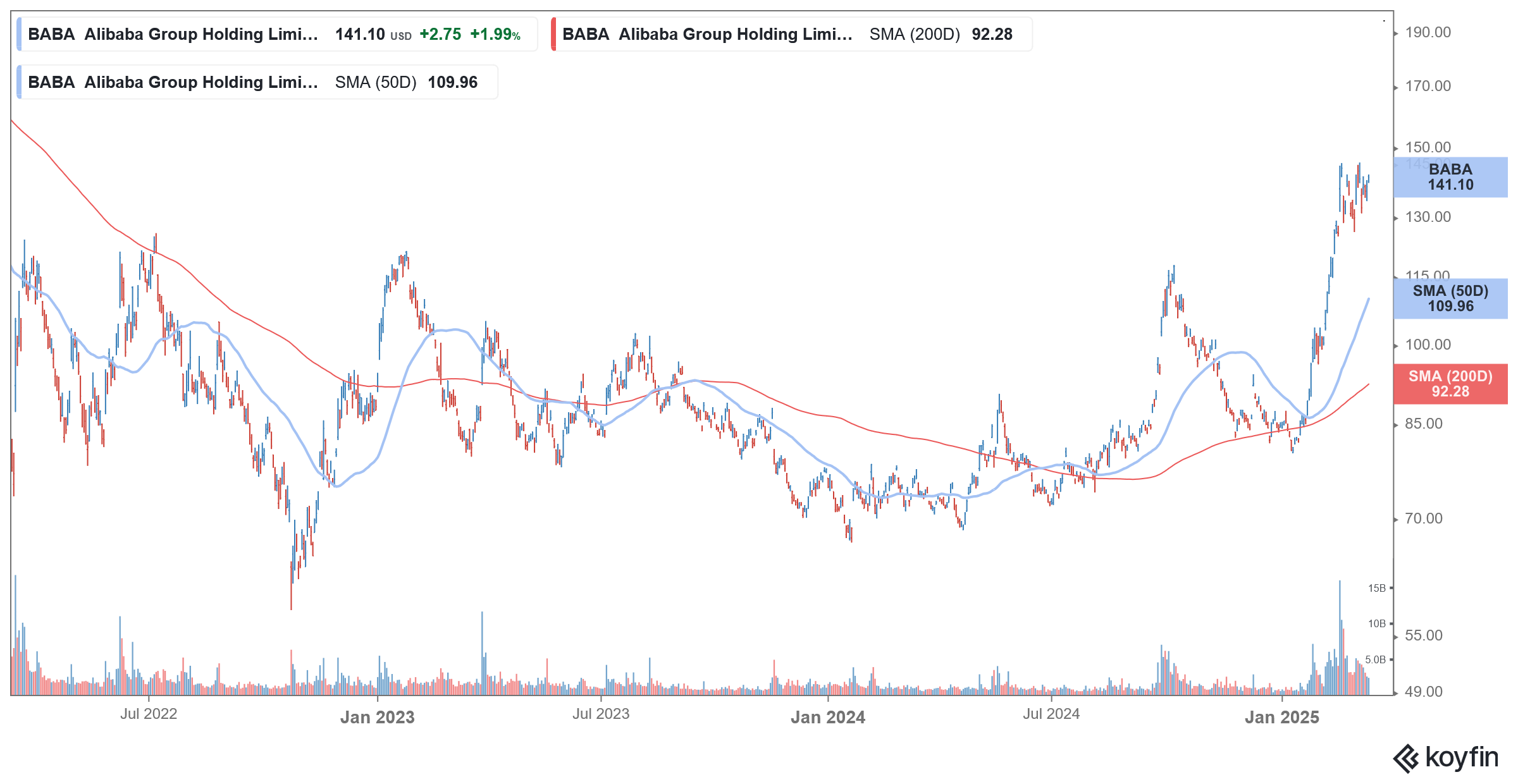Alibaba Updates Its AI Model Amid Competition with Western Rivals
Please note that we are not authorised to provide any investment advice. The content on this page is for information purposes only.
The competition for global domination in artificial intelligence (AI) has heated up this year as Chinese companies play catch-up with US rivals. Earlier this week, Chinese tech giant Alibaba updated its AI model amid growing competition with domestic and foreign players.
Researchers at Alibaba’s Tongyi Lab unveiled the new open source R1-Omni that adds another layer of understanding to computer vision and can infer the emotional state of a person in a video. The updated model is an enhanced version of HumanOmni, which is an open-source model from the same researcher, Jiaxing Zhao.
The new model will not only take on OpenAI but also Chinese AI startup DeepSeek which created waves with its low-cost AI model.
Alibaba Updates AI Model
Separately, Alibaba unveiled a new version of its AI assistant mobile app Quark, and the “New Quark” now integrates functions including deep thinking and a chatbot. The app is still in pilot mode and will be gradually available to more users.
“As our model capabilities continue to evolve, we envision Quark as a gateway to endless possibilities where users can explore everything with AI,” said Wu Jia, CEO of Quark, in the statement.
Alibaba has raised its game in AI which has got a thumbs up from the markets. There has been a renewed interest in Chinese stocks ever since DeepSeek announced that its AI model, which it built for just about $6 million, performed better than Western rivals like OpenAI on several parameters.
While US tech stocks have rallied and delivered double-digit returns in the previous two years, Chinese tech stocks, especially Alibaba, have sagged after peaking in 2020. That year, China cracked down on the company, and Alibaba had to cancel the IPO of its subsidiary, Ant Financial. The tech crackdown only worsened in 2021, and although Alibaba paid a record $2.8 billion fine to settle the antitrust case, markets were not too convinced that the worst was over for the company.
Notably, Ma wasn’t seen in public for several weeks after the cancelation of Ant IPO in November 2020 and appeared in an online interaction only in January 2021.
Xi Jinping Met Chinese Entrepreneurs
Last month, Chinese President Xi Jinping met the country’s entrepreneurs, including Alibaba’s co-founder Jack Ma, at a symposium. Ma’s participation in the event with Jinping becomes all the more important as the Chinese billionaire was the face of China’s crackdown on its tech moguls whom the Communist Party believed had become too big for their shoes.
Meanwhile, the country seems to have changed its stance on the private sector, and at that meeting, Xi stressed, “Now is the perfect time for private enterprises and entrepreneurs to thrive.” He called upon Chinese companies and entrepreneurs to “show their talent” while adding, “The new era and new journey have broad prospects for the development of the private economy and great potential.”
Analysts see Xi’s meeting tech leaders from companies such as Alibaba, Huawei, and DeepSeek as positive. “This is the strongest signal China could release to boost social confidence. The fact that Xi Jinping himself shows up to meet with the entrepreneurs highlights the political significance of this meeting,” said You Chuanman, senior lecturer at the School of Law, Singapore University of Social Sciences.
During a conference in Singapore, Alibaba’s chairman and co-founder, Joe Tsai, said, “I wouldn’t underestimate the importance of that event.” He added, “The message is very, very clear that the government is looking to private enterprises to come back and boost the economy.”
Alibaba to Invest $52 Billion in AI and Cloud Computing
Notably, Alibaba has vowed to invest $52 billion towards AI and cloud computing over the next three years, which happens to be the single largest investment in this field from a Chinese private company.
According to Tsai, Xi’s meeting “gave us the confidence to put our earnings back into capital expenditures and investments, and also hire people.”
Apple Partnered with Alibaba for AI
Notably, Apple has partnered with Alibaba and will integrate its AI into iPhones in China. The company hasn’t been offering its “Apple Intelligence” features in China due to regulatory issues. Unavailability of these AI-powered features was among the reasons Apple’s sales in China fell sharply in the December quarter, and it lost its position as the largest smartphone company in the country.
China Sets 2025 GDP Growth Target at 5%
China has been trying to revive its sagging economy, which barely met the 2024 GDP growth target of 5% after the flurry of monetary and fiscal stimulus measures that were unleashed in the back half of the year. The country took both monetary and fiscal measures to support its economy, which is suffering from structural issues ranging from slow growth in domestic consumption, an aging economy, a property market slump, and external risks emanating from tariffs on Chinese exports by several countries, including the US, which is its biggest trading partner.
China has set a 2025 GDP growth target of “around 5%.” The country raised its 2025 budget deficit target to “around 4%” of GDP, which is in line with estimates and 100 basis points higher than last year. While there are concerns over high debt, last year, the country said that it still has much room to raise the fiscal deficit.
Most analysts, however, expect China to ramp up support for its economy through the course of the year as the country navigates challenges on both the domestic and international fronts.
Coming back to Alibaba, after underperforming US-based peers consistently over the last five years, the stock gained traction in 2025 and is up over 66% for the year, even as US tech stocks have crashed.






